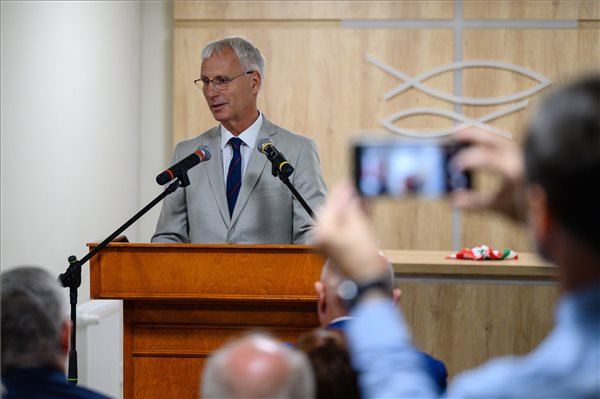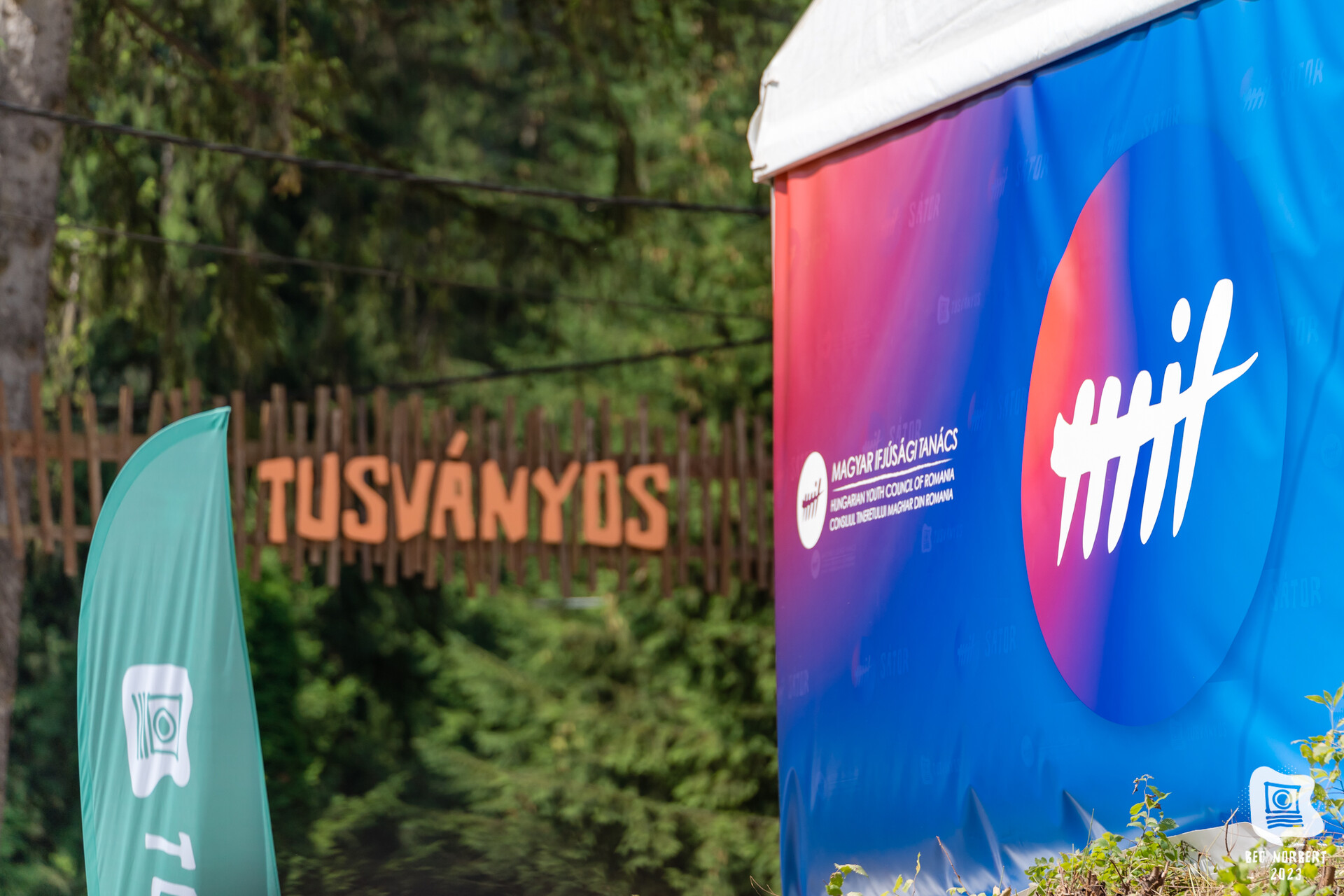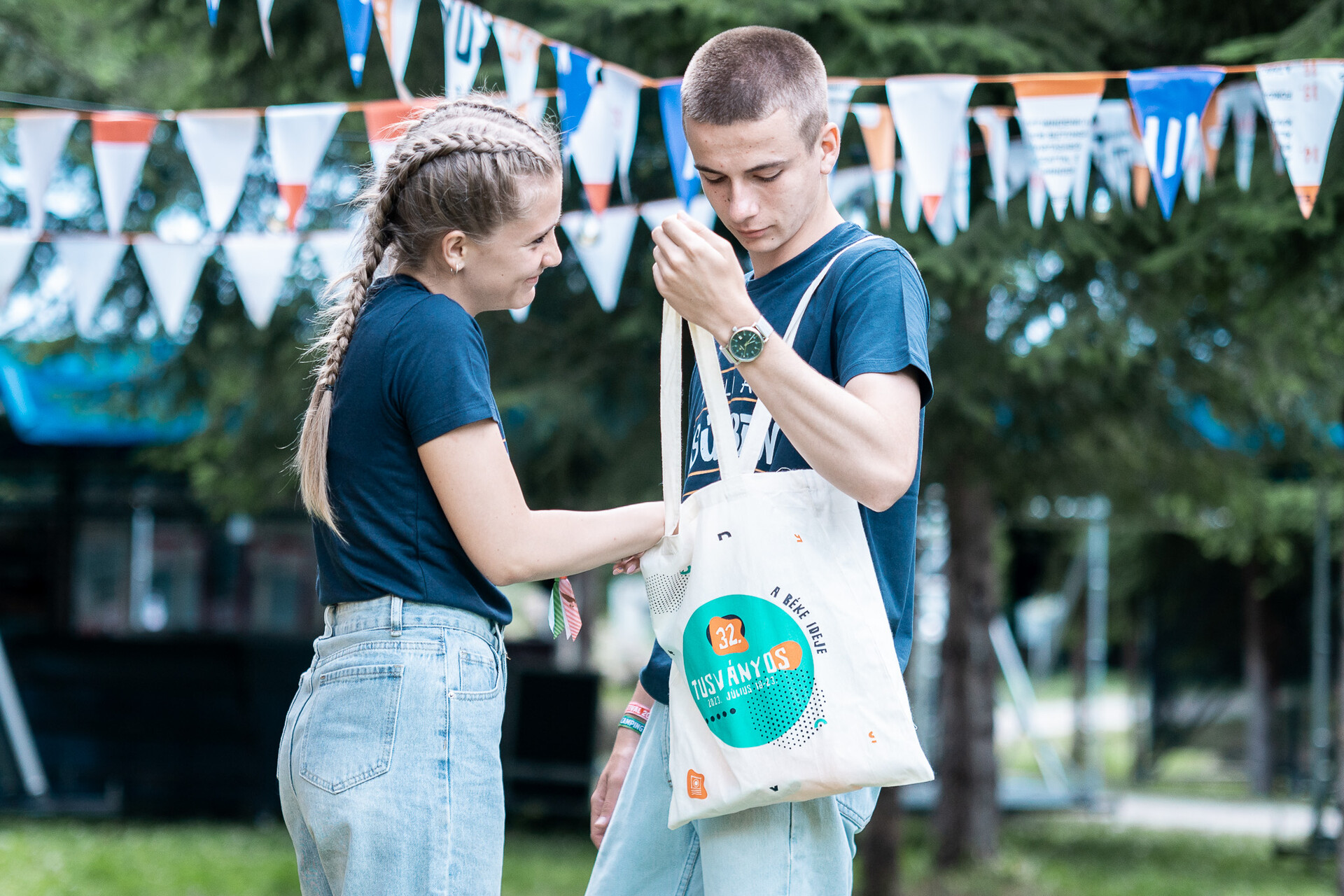
A new building in Balatonboglár was inagurated as center for young Polish people, and for pilgrims to rest.Continue reading
The 32nd Bálványos Summer Free University and Student Camp – Tusványos – began on Tuesday in Băile Tușnad (Tusnádfürdő), Transylvania, with the motto “A time of peace,” and will run until dawn on Sunday, organized by the Hungarian Foundation for Minorities – Pro Minoritate and the Hungarian Youth Council of Transylvania.
The 69 partner organizations will host more than five hundred events at thirty venues in the campsite and sports field on the banks of the river Olt. The roundtables and panel discussions on topical public and political issues are grouped around three themes:
War and its consequences, the economic situation, with a special focus on energy security, and national policy.
This year again, the Friday morning national policy roundtable will be attended by leaders of Hungarian advocacy organizations and political parties from the Carpathian Basin, while the traditional Saturday morning political forum will feature presentations by Prime Minister Viktor Orbán and László Tőkés, President of the Hungarian National Council of Transylvania (EMNT), as well as a Q&A session with the audience.
Tusványos will also offer a wide range of cultural, traditional, educational, and entertainment programs, as well as literary and theatrical events, and for those interested in folk music and dance, there will be a new venue, the János Kriza Garner (Kriza János Csűr), which will be inaugurated this year.
The festival’s concert program started with performances by the Magna Cum Laude, among others. Later during the week, the Pál Utcai Fiúk, Quimby, Anima Sound System, Vad Fruttik, Parno Graszt, Péterffy Bori and the Love Band, Republic, and Ismerős Arcok will also perform at the 32nd Tusványos.
The official opening of the 32nd Bálványos Summer Free University and Student Camp takes place on Wednesday morning, when the professional and social programs begin.
There will be a discussion of the decades-old tradition of Hungarian-Polish friendship in two of its two programs,
one of them titled Will Europe be Christian or Will It Not Be – Christianity in everyday life, with the participation of a bishop, a historian, and sociologist, a philosopher, and writer, moderated by Gergely Mohay, curator of the organizer Waclaw Felczak Foundation. The other panel discussion is entitled Trust in God and Keep Your Gunpowder Dry – Security Policy in the Shadow of the Russo-Ukrainian War with the participation of the Hungarian-Polish Friendship Society of Wroclaw, Poland; the editor-in-chief of Sieci weekly; and a security policy expert, the head of the Geopolitical Workshop at Mathias Corvinus College, moderated by the Foundation curator Mihály Rosonczy-Kovács.

Photo: Facebook/Tusványos
Magyar Kultúra (Hungarian Culture) magazine’s tent will host literary and musical evenings, musical stand-ups, book presentations, theater performances and roundtable discussions, such as
a Petőfi standup, a Tamás Cseh evening, and time capsule making. The cultural magazine focuses this year on poet and freedom fighter Sándor Petőfi, born 200 years ago.
Éva Bonczidai, editor-in-chief of the culture magazine, will also touch on photographic history in her lecture, answering the question of who was the last Hungarian soldier of 1848. Another lecture by the editor-in-chief will focus on the reform era and the social effects of the cholera epidemic, and participants will be able to make their own time capsule, which they can rediscover in Tusványos in a year’s time in the Hungarian Culture Tent.

Photo: Facebook/Tusványos
The 32nd Bálványos Summer Free University and Student Camp is said to offer five hundred programs, with about 1,000 performers/speakers in thirty tents, and
the organizers are expecting 80,000 participants this year.
Featured image: Facebook/Tusványos